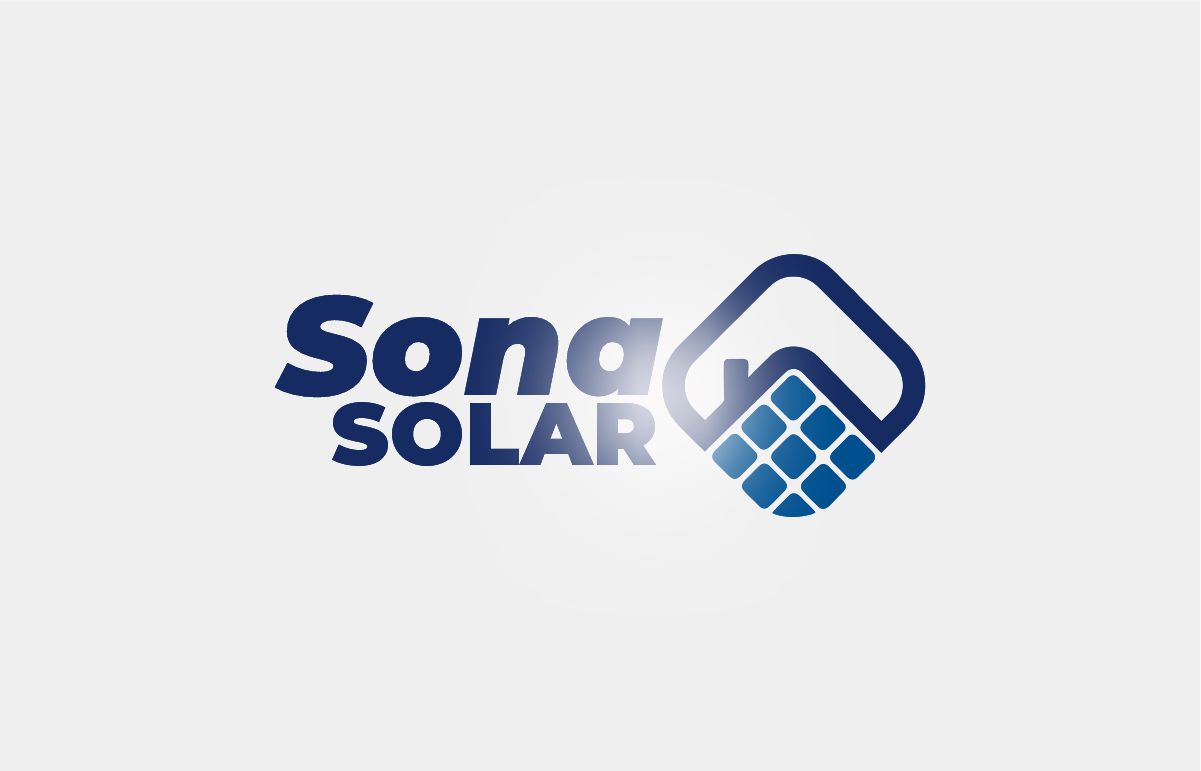Sona Solar Zimbabwe Is Customer Centric. We offer a Comprehensive One-Stop-Shop experience and Bridge The Huge Gap Between Getting The Best, Quality Products and Getting it at an Affordable Price.
Feel free Call us or WhatsApp us on +263 78 922 2847 and +263 78 864 2437.
For Borehole Drilling Services WhatsApp us on +263 77 389 8979 or +263 71 918 7878.
Residential Solar Systems in Zmbabwe have been becoming more affordable in recent years which increases the popularity of solar energy.
A smart way to beat the fear of electricity bills while protecting the planet. If you are on the verge of switching to solar power and want to know more about residential solar systems, you are in the right spot.
After reading this article, you will know more about:
- How residential solar energy systems work.
- The types of residential solar systems.
- The first steps to going solar and choosing the right system.
How do residential solar energy systems work?
Not great news for beginners: There are many different types of residential solar energy systems.
Side note, PV devices generate electricity directly from sunlight via an electronic process that occurs naturally in semiconductors, as stated by SEIA (Solar Energy Industries Association).
Going back to how residential solar systems work, solar panels generate power by converting sunlight into the Direct Current (DC).
 |
| Types of Residential Solar Energy Systems in Zimbabwe You Need To Know! |
But how can you choose the right residential solar system for your house? Before getting to that, we will deep dive into the types of solar systems.
What are the types of residential solar systems?
There are three types of residential solar systems. Each one of them comes with pros and cons, providing you with different solar power generation and storage options.- On-grid Solar Systems
- Off-Grid Solar Systems
- Hybrid Solar Systems
A. On-grid solar system
On-grid – or in other words “grid-tied” – solar systems are considered to be the most common type of residential solar systems worldwide.How it works:
An on-grid solar system is directly tied to the traditional electric utility grid. This is in part because it can utilize the grid to help regulate the delivery of power from the panels into the house. By doing so, on-grid solar systems can reduce the amount of equipment needed and the overall system cost.If you decide to proceed with an on-grid solar system, this means your house will take and use the electricity from the grid, when the solar system does not produce sufficient energy due to various factors such as weather conditions.
But, what about the excess power? Surplus energy generated by the solar system is fed back to the grid. So, you will be paid a feed-in tariff by your electricity retailer.
This leads us to one of the advantages of this system – if you prefer this option, you don’t have to buy an expensive battery backup system to store excess energy
What are the main components?
On-grid systems require three main components:- Solar Panels.
- A power meter.
- An Inverter.
Want to learn more about solar inverters before moving on?
Suitability & Applicability:
- Houses in urban areas.
- Strong grid connectivity – the stability of voltage and frequency.
Advantages
- Better savings
- No battery required
- Cheaper price compared to the other types
- Simpler to install
Disadvantages:
- Requires strong grid connectivity.
- Does not work in rural areas.
B. Off-grid solar systems
Unlike on-grid systems, off-grid residential solar solutions are preferred by house owners living in rural areas.How it works
An off-grid residential solar system is completely disconnected from the traditional electric power grid.Therefore, together with solar panels, this system requires a large capacity battery array that is capable of powering the property during periods of low irradiance in winter.
Plus, off-grid systems need an off-grid inverter to supply the maximum load ever required at one time.
Part of off-grid households have backup generators installed as a third energy source during periods of prolonged excess production or unusual demand. However, these can be quite expensive to buy and run.
As a note, when using an off-grid solar system, you will need to be very careful with your energy consumption to make sure that your backup battery doesn’t get completely drained. That is the reason the houses with off-grid solar systems are smaller or more conservatively designed.
What are the main components?
Off-grid solar systems work with three main components:- Solar Panels.
- An Invertor
- Battery systems
Want to know more about solar batteries?
- Houses in rural areas.
- Weak or no grid connection.
- Agricultural and construction sectors.
Advantages:
- Opportunity to go solar for house owners living in rural areas.
- 100% self-sustaining energy use – energy independence.
Disadvantages:
- Costly compared to the other two options.
- Requires a large capacity battery array.
C. Hybrid solar systems
If you are looking for a more flexible system, a hybrid solar system can be the answer.How it works
As the name suggests, a hybrid solar system is simply a combination of on-grid and off-grid systems. Similar to an on-grid solar system, a hybrid solar power system is connected to the utility power grid.What makes it more flexible is, if you choose to go with this option, your house can draw energy both from the grid and battery when needed.
A hybrid solar system sends solar power to your inverter, which then sends energy to power your home. The extra energy that is not used to power your home goes to the battery for storage. That is why the battery can provide power to your home when your solar panels are not producing energy.
 |
| Types of Residential Solar Energy Systems You Need To Know! |
Please keep in mind that hybrid systems are more expensive than grid-tied systems due to the added battery and installation costs. On the other hand, they are much cheaper than off-grid solar systems. The main benefit of a hybrid solar system is that you will have power in any situation.
What are the main components?
Hybrid residential solar systems require four main components:
- Solar Panels.
- Meters.
- An hybrid invertor.
- Solar battery systems.
Suitability & Applicability:
Houses in rural areas
Micro-grids
Agricultural sector
Micro-grids
Agricultural sector
Advantages:
- Flexibility
- No blackouts
- Cheaper than off-grid systems
Disadvantages
More expensive than on-grid systems Hybrid residential solar system
Now that you have an understanding of residential solar systems, you may be wondering how to get started with your solar journey.
Let’s start with what to consider before deciding on which type suits your house and needs best.
These are the questions you need to answer to consider changing over to low-cost efficiency measures before going with solar energy.
Now that you have an understanding of residential solar systems, you may be wondering how to get started with your solar journey.
Let’s start with what to consider before deciding on which type suits your house and needs best.
Before getting started…
Investigate the energy efficiency of your home. What can you do to upgrade your house’s efficiency? What is your total electricity usage?These are the questions you need to answer to consider changing over to low-cost efficiency measures before going with solar energy.
Once you have decided to go solar, these are the steps to follow:
- Look at your home’s solar potential: The initial goal is to figure out how much power you can generate at your particular site. Not every home will be suitable for solar due to various factors from geography to climate to the design of the roof and facades.
- List all the options: Did you know that buying and installing a solar system at home is not the only way to go solar?
Photovoltaics (PV) systems work with all the three solar energy systems, and Sona Solar Zimbabwe is ready to accompany you as you switch to solar energy!
We are ready to help you in our expert team in your solar journey – just get in touch with us to get a fully customized premium solar roof that will protect your home and your loved ones!
Switch to solar power with Sona Solar Zimbabwe:
Here at Sona Solar Zimbabwe, we take pride in our award-winning metal solar roofs with a minimalistic Nordic design that are both smart and beautiful. This is where tradition meets high-tech.Did we mention that our roofs are beautiful?
As an award winning integrated solar roof solution, Sona Solar Zimbabwe offers full packages of solar systems, including solar batteries, solar inverters, and other necessary devices.We are ready to help you in our expert team in your solar journey – just get in touch with us to get a fully customized premium solar roof that will protect your home and your loved ones!
Named after the Gaelic term (Old Irish Word) Sonas - for Good Fortune (Prosperity and Happiness) - Sona Solar Zimbabwe is committed to bringing Prosperity and Happiness to its customers through Solar Solutions in Zimbabwe. We deliver turn-key energy efficient solutions to meet client energy and budgetary needs and reduce environmental impact.

Sona Solar Zimbabwe
Sona Solar Zimbabwe7 Frank Johnson Avenue,
Avenues, Eastlea
Harare, Zimbabwe.
Call Us Today:
Solar Sales: +263 78 293 3586
Solar Sales: +263 78 922 2847
Operations: +263 78 864 2437
Sona Landline: +263 24 2797750
Email: sonasolarzw@gmail.com
Website: www.sonasolar.co.zw

Borehole Experts Zimbabwe
Borehole Experts Zimbabwe7 Frank Johnson Avenue,
Avenues, Eastlea
Harare, Zimbabwe.
Call Us Today:
Borehole Sales: +263 77 389 8979
Borehole Sales: +263 71 500 3777
Borehole Operations: +263 71 918 7878
Borehole Landline: +263 24 2797750
Email: boreholeexpertszw@gmail.com
Website: www.boreholeexperts.co.zw
Choosing The Best Solar Company in Zimbabwe:
Choosing a solar panel installation company can be time-consuming. It is easy to be overwhelmed when comparing the reputation, price, warranty, and panel options of different solar providers.Sona Solar Zimbabwe stands out as one of the most reputable companies in Zimbabwe. Sona Solar Zimbabwe offers reliable systems with a 25-year warranty, 10-year workmanship warranty, and two-year production guarantee.
Sona Solar Zimbabwe prides itself on offering original solar products and accessories. Sona Solar Zimbabwe also maintains partnerships with reputable brands around the world.

.jpg)

.jpg)

.jpg)




.jpg)





